The 25 best new characters of the decade
We've just met them, but we'll never forget them
The 25 best new characters of the decade

Pac-Man and Mario owned the 1980s. Sonic, Lara and Snake took over for the 1990s. Their games are considered classics. Their names are timeless and iconic. Their images are burned into the memory of every gamer, even those who were born after the characters themselves.
Now we have another ten years worth of heroes, villains, sidekicks and love interests to occupy our imagination. Which, however, will remain there? Who will we still remember, love and endlessly discuss at the start of the next decade? And the decade after that? These are our 25 favorite characters of the 2000s, listed alphabetically. Agree, disagree and pick your own in the comments section below.
Alyx Vance (Half-Life 2)

Around the beginning of the decade, the conventions of videogame narrative said that action game NPCs must be unconvincing mechanical ciphers who move like tractors and talk like a broken Speak & Spell. Female ones should pout and constantly threaten to get their bangers out.
Screw you, conventions of videogame narrative! said Valve. We care not for your insidious fallacies. Were going to make a real girl!
And, much like the nerds in Weird Science, they did. Alyx behaves like an actual person, with all the corresponding strengths and failings. Shes determined and headstrong, but nuanced and funny. Shes stoic and badass when emotionally driven to be, but shes also vulnerable and unsure of herself. In short, shes a human rather than a stereotype, and one youll genuinely grow to care for without ever being manipulated into doing so.
Arthas Menethil (Warcraft III: Reign of Chaos)
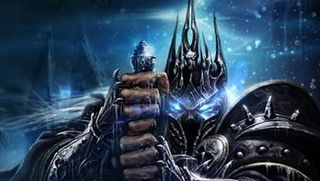
He was once a mighty and honorable paladin, battling to save his people from the undead scourges of Azeroth. To succeed in his quest, however, he needed more power and to yield more power, he needed a sword cursed by his enemies leader. By the end of Warcraft III, Arthas had lost his soul to this blade, and his sense of self to possession by the villainous Lich King.
Whats riveting is that you witness this entire transformation, from good to evil, across multiple games and multiple genres. During his real-time strategy origins, you experience Arthas bloodlust firsthand as he orders his men to slaughter a citys innocent population in order to stop the spread of the undead. By the time you catch up with him in World of Warcraft: Wrath of the Lich King, hes gone completely Darth Vader, gathering and marshalling the same forces he once sought to destroy.
Big Daddy (Bioshock)

How do you describe a world as unique, complex and brilliantly bizarre as Rapture? Easy just point at Big Daddy. This already iconic creature is a perfect symbol, and summary, of the BioShock paradox. Its scary and yet sad. Its overwhelmingly alien and yet disturbingly human. Its brutally vicious to strangers while lovingly gentle to Little Sisters. Its outer appearance is clunky and retro, but its inner genetics are the stuff of futuristic sci-fi nightmares.
Big Daddies also expose the hypocrisy of Andrew Ryans utopia. If these people moved underwater to escape the so-called slaveries of government, church and military, how can they then justify lobotomizing their fellow citizens, imprisoning them in monstrous diving suits and condemning them to pace the ocean floor for all eternity? This study of morality is what made BioShock a masterpiece, and this mystery is what makes the Big Daddy such a fascinating character. We cant wait to learn more, and get behind the helmet, in 2010s sequel.
The Boss (Metal Gear Solid: Snake Eater)
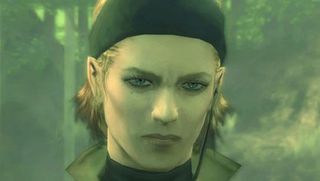
The template for what Naked Snake/Big Boss would eventually become, The Boss is an enigma right up until Snake Eaters final moments. A legendary guerrilla fighter during World War II, shes introduced as Naked Snakes mentor, but their bond is actually much closer to an adoptive mother/son relationship. And thats why, when she betrays Snake and leaves him broken and bleeding, it nearly destroys him. But its all part of her final lesson to to her pupil: for soldiers, loyalty is an illusion. Friends one day will be enemies the next, and the only thing a true soldier can depend on is the mission at hand.
In every subsequent meeting, she attacks Snake, but never really seems to be trying to kill him. And every time they meet, you can always catch a little glimmer of something like sadness or tenderness through her cold, monotone exterior. The more we learn about her, the more tragic and effed-up The Boss becomes. And after Snake kills her in the games final, sad duel, he learns that shed been a double agent the entire time, resigned to go down in history as a traitor so as not to spark a nuclear war. Killing her was like killing a Colossus hard-won, but ultimately a hollow victory that haunted us for years.
Carl "CJ" Johnson (GTA: San Andreas)
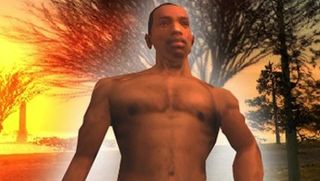
Rockstar protagonists have become so fun and so memorable over the past decade, its hard to believe that Grand Theft Auto III starred a generic mute. Vice Citys Tommy was deliciously vengeful, but for us, the first breakout star of the series was a smart and resourceful kid trying to protect his family and escape the gangster path that drugs, poverty and corrupt police had forced him down. If you werent rooting for CJ within the first five minutes of San Andreas, you simply werent paying attention.
And yeah, his race was important, too. Even today, games pigeonhole African-American characters into the most obvious stereotypes and painful cliches. CJ certainly wasnt the perfect antidote to that trend he is a murderous criminal, rap producer and womanizer, after all but he was a big step in the right direction, with intelligent dialogue, noble intentions and more common sense than anyone else in the story.
He also signaled the start of Rockstars diversification workshop. Since CJ, weve played an Eastern European immigrant, a Jewish biker, a Chinese visitor and two Dominicans, one of whom is the business partner and bodyguard to a gay nightclub owner. Now if only the rest of the industry were so brave
Clank (Ratchet & Clank series)
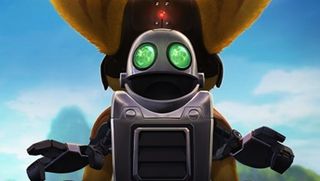
Sidekicks are supposed to be comic relief. Theyre meant to break the tension with a hilarious catchphrase or stumble, slapstick-style, into obvious danger so that the real hero can rescue them again. Sidekicks can be crazier, funnier or cuter than protagonists, but they should never, ever upstage them.
Clank must not have gotten that memo, because we cant think of anyone who prefers the self-centered and smart-alecky Ratchet to the quiet, collected and effortlessly charming robot with cool powers and cooler personality. Most admirably, he doesnt try to steal the show from his lesser half which means, of course, that he automatically does.
But the best thing about Clank? The games developers understand our preference for the sidekick, and give us as many surprising opportunities to play him as possible.
Sign up to the GamesRadar+ Newsletter
Weekly digests, tales from the communities you love, and more
Dante (Devil May Cry series)
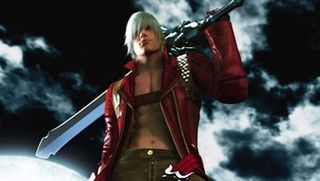
The first real action hero of the PS2 era, Dante had the rare honor of changing action games as we understood them forever. His first outing seamlessly blended beautiful visuals with tight platforming and fast, balletic action, making Devil May Cry the first game to deliver the experience that Hong Kong movies had teased us with for so long. Even as DMC transformed notions about what games could be, though, Dante himself made a deep impression on gamers psyches. He was unforgettable in his red leather trenchcoat and long white mane, and packed dual pistols and a big sword. He was smart-mouthed, unflappable and able to deal easily with anything and everything thrown his way, even when those things included very large blades that ran straight through his torso.
The son of a heroic demon father and a human woman, Dante was a brutal mercenary anti-hero before that kind of thing was a trend, but he wasnt a stoic hardass, either; he was playful, cocky and loved to tease his super-serious enemies before cutting them to ribbons. He set the template for all subsequent smartass action heroes, and while his relevance seems diminished after a string of sequels that never really recaptured the first games spirit, his first explosive outing changed the course of videogame history for the better.
Francis (Left 4 Dead)
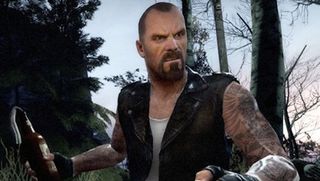
Armed with a shotgun and a sharp leather vest, Francis is ready to blast his way through the zombie apocalypse. But that doesnt mean the badass biker is happy about it. He hates planes. He hates elevators. He hates the woods. And you know what? He probably hates you, too. Thats exactly why we cant help loving the grouchiest survivor in the Left 4 Dead universe. Even after staving off hordes of flesh-eating infected, hes got enough vitriol leftover to hate on the philosopher and novelist, Ayn Rand.
Francis is also hilarious, with occasionally dimwitted one-liners that make Left 4 Dead as funny as it is frightening. Hearing him say with grim determination that the goddamn vampires wont beat him cuts through games tension like a knife. No wonder Francis is almost always the first character that players choose when entering a game lobby.
GLaDOS (Portal 1 & 2)
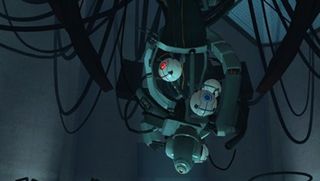
The cake is a lie. Weighted Companion Cube. Still Alive.
Portal is a lean, mean meme machine, and crucial to this astounding cleverness is GLaDOS, the murderous artificial intelligence that runs Aperture Labs test facility. Much of Portals joy comes from watching her programmed personality unravel as she repeatedly attempts to kill you and repeatedly fails. As she slowly but surely degenerates into a mess of mixed messages and cross purposes and as you methodically incinerate the components of her electronic brain you cant help but experience pity.
The ending song indicates that GLaDOS continues to exist in some form or another, so we hold out hope that one day soon well be treated to more of her manipulative shenanigans. And maybe well finally get a piece of that cake. We hear its delicious and moist.
Most Popular

